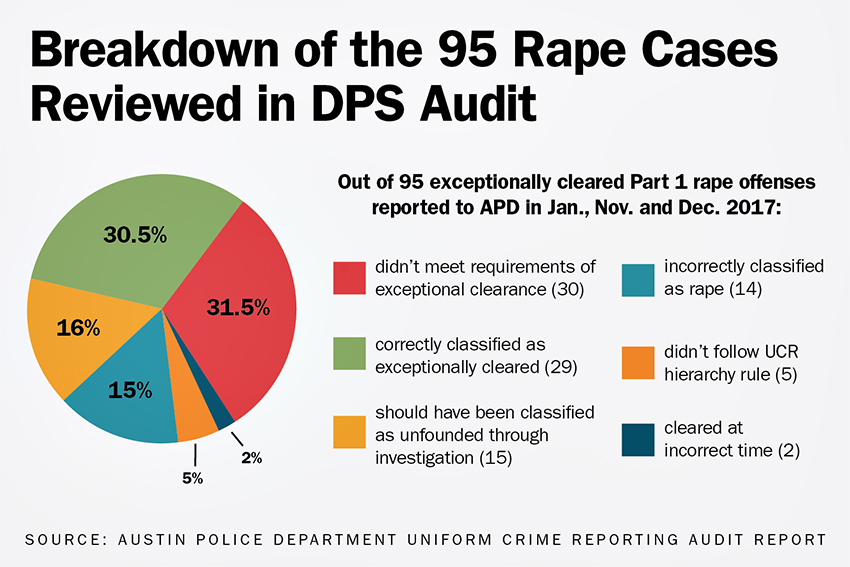The UT Police Department initiated their own internal review of University sexual assault cases after learning of a Texas Department of Public Safety audit reviewing Austin Police Department’s sexual assault cases.
“Anytime there’s an issue in general that comes to the forefront … we look carefully at that and say ‘What if that were us?,’” UTPD chief David Carter said.
The DPS audit released earlier this month detailed how APD incorrectly classified about a third of rape offenses from January, November and December 2017 as exceptionally cleared. This means the cases should still be investigated.
Carter said UTPD interprets uniform crime reporting guidelines for exceptional clearance as having enough information to file charges but being unable to because of factors beyond their control, such as the death of the suspect or the victim refusing to cooperate. The clearance codes are technical terms used to report crime statistics to the FBI and to determine a case’s status. Carter said a case is generally closed through clearance by arrest, exceptional clearance or unfounded clearance, which means no crime occurred.
UTPD looked at 36 exceptionally cleared cases from the past five years and determined six cases would have been more accurately classified as inactive, which indicates police cannot further investigate the case with the information available, Carter said.
In a press conference held Jan. 16, APD chief Brian Manley said he ordered a third party investigation in APD’s handling of sexual assault cases.
Manley said APD also created a template requiring the detective in a sexual assault case to establish exceptional clearance only after being able to identify and locate the alleged offender, have probable cause to make an arrest and to have reason as to why the arrest is not being made.
Near the end of the conference, Manley addressed survivors directly and said he did not want to forget there were faces behind the numbers.
“I can’t say that I understand what a survivor goes through, but I know the questioning is difficult,” Manley said during the conference. “I know that sitting with investigators having to talk about a very violent, personal attack can be difficult, and there are so many challenges throughout the time.”
Amanda Edwards, a radio-television-film freshman, said she took her sexual assault case to APD in October. After two weeks, Edwards said APD didn’t file charges because her alleged offender told the detective their interaction was consensual. Edwards’ case was not one of the cases reviewed in the DPS audit because she filed it in October 2018, a month not investigated in the DPS audit.
“I went home and just cried,” Edwards said. “I put all of this effort to go to the police by myself and to get nothing out of it was really heartbreaking.”
Carter said police can change the status of a sexual assault case, regardless of how it was cleared.
“If new information comes to light … we always will pursue that for that victim and reopen that case as long as it’s within the statute of limitations,” Carter said.
In most sexual assault cases, the statute of limitations in Texas allows police to prosecute a suspect within ten years, Carter said.



















